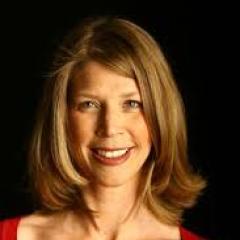
Cantor Tamar Havilio
How did you end up on the path of academia and specifically as the Head of Cantorial Studies, DFSSM at HUC-JIR/Jerusalem?
There were many steps that happened in order for me to be in this position at HUC in Jerusalem. In 2001, I was doing my second Master's Degree at NYU's Tisch School of the Arts, Department of Performance Studies. After serving five years as a congregational cantor, I felt that my mission was to create a new pedagogy of the development of the prayer leader through the techniques of the development of a performing artist. The Performance Studies department allowed me to do a detailed investigation of the connection of the pedagogy of the artist and the performance of text with the ritual performances of the prayer leader. I was and still am fascinated by the connection of all performing texts. I began developing a new way of teaching embodiment of sacred ritual and text. In 2001, the Twin Towers fell and my reaction was to come to Israel for Succot. Here is where I started speaking with HUC about coming to work with Cantor Eli Schleifer. I came in 2002 and began this journey and this fall will welcome my 15th class. In 2010 I became Head of Cantorial Studies. In 2004 I married Shmulik Havilio, a 20th generation Jerusalemite, and we have three sons Nadav, Tal and Noam.
What classes do you teach?
Primarily I am in charge of teaching Torah Cantillation to all of the incoming YII students, the Cantorial Workshop (basic daily nusach, cantillation of Haftarah and Megillat Esther) and I co-lead the Prayer Workshop. Cantor Evan Kent coaches the students and teaches a section of the Cantorial Workshop in their second semester. In the Prayer Workshop, I prepare, rehearse and reflect prayer experiences with the first year students. I also lead High Holy Days and the HUC Choir for High Holy Days, Ordination, the Debbie Friedman Memorial concert and the Classical Reform concert.
Tell us more about Trom-T’fillah” or Pre-Prayer and “The Praying Body.”
Trom literally means "PRE" or "Before" in Hebrew. I am fascinated by what inspires one to pray initiating from the body. A praying body is a body that instigates a desire for prayer from at first a physical need and then to the spiritual. It can be as simple as praying for a body to heal or work. It comes from the very first pray-er in the bible, Hannah. She is praying to fill an empty space within her body. She wants to become pregnant and prays from this physical desire that transforms into prayer to God. It becomes a basis for prayer to evolve and faith to become rooted. I want to help our students to begin to have a language to both learn how to pray "before" they lead prayer and teach others prayer. It is organic, not just textual. Therefore, we actually can become and live our texts through our built subtext that is based on our own personal "trom" tefillah. The prayer is natural and always there. The subtext of our prayer is what makes it real and connects to the congregation. They may not know what I am thinking but they feel what I want in the prayer. It is that feeling of connection that is transforming to the pray-er and leader.
How do you see yourself as a teacher and influencer on future cantors, rabbis, and educators?
I teach and preach the real and the authentic. I want our future cantors, rabbis and Jewish educators to understand they have to walk their talk. Here in Israel, I pray with my feet each day. I have a deep connection to Israel, especially Jerusalem, that I hope to pass on to the students. Whether I am leading prayer at the Kotel with Women of the Wall, marching for equal religious rights or leading girls from the TALI school in the "Tekes B'not Mitzvah," I am praying with my feet. I teach faith through our sacred texts by helping each first year student find their voice. I teach that they always have to walk into a door with the desire to help enable others to feel and believe their faith and Judaism through pure love and joy.
What do you think are some of the challenges facing young Jewish leaders today?
In this very broken world, the challenge is to keep our faith strong and our desire to resist evil in the world holy. This is certainly a world that demands a constant edge and knowledge of the oppressors and the oppressed. Our Jewish leaders today need to create safe places through our sacred music and texts where Jewish communities can explore and grow. We need to constantly work in our synagogue to give holy experiences that are not fraught with politics and inauthentic leaders. We have too much of this on the political stages. Creating authentic prayer leaders is even more vital to the strength and growth of our holy communities.
What other interests do you have that help you wind down and relax?
I love to run, listen to jazz, and run around with all of my boys. I am obsessed with my Tibetan Terrier Charlie, who sometimes comes to HUC with me. I love to see movies - the more fantastical the better. I do not have a lot of winding down time, but most of it is with my busy, sweet and active family. I love to travel and see all parts of Israel, Europe and the US. I hope to go to India and Africa within the next ten years. Cooking and eating fine food is my therapy and my love.
Cantor Tamar Havilio is Head of Cantorial Studies and Senior Cantor at HUC-JIR DFSSM Jerusalem Taube Family Campus

